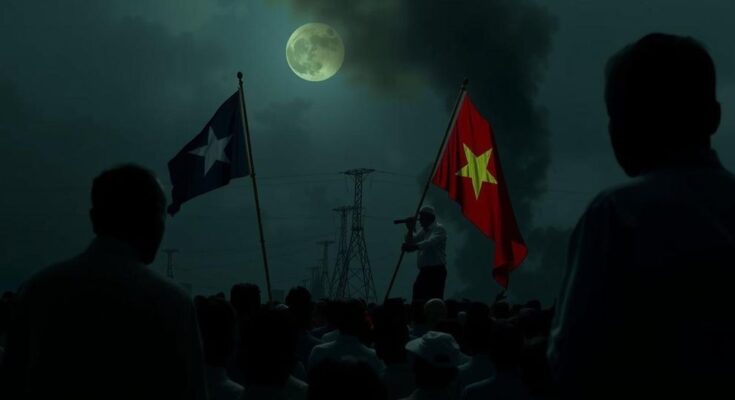Joseph Kung Za Hmung emphasizes the urgent need for dialogue in Myanmar’s civil conflict, advocating for mediation amid the military’s violence. Recently appointed to the National Human Rights Commission, he aims to bridge communications with various factions controlling significant parts of the country. Amidst calls for peace from leaders like Cardinal Charles Maung Bo, the situation of prisoners, particularly political ones, has been scrutinized, highlighting the ongoing struggles for human rights and stability in Myanmar.
In Myanmar, Joseph Kung Za Hmung, an educator and founder of St. Joseph University in Yangon, highlights the pressing need for dialogue in the ongoing civil conflict. He emphasizes that a mediation process is vital to halt the military’s violence against civilians and revitalize the nation toward social stability, education, and health. Recently appointed to the Myanmar National Human Rights Commission, Kung aims to foster mediation between conflicting forces, aided by insights from civilians and connections established with various groups. The military junta reappointed members of the Human Rights Commission, comprising civilians rather than military personnel, to encourage a pathway toward dialogue. The commission’s unique position affords it the capacity to facilitate discussions between the junta and popular forces, which currently control about 75% of Myanmar. There is also interest from ASEAN countries in mediating for peace, with efforts intensifying amidst rising violence and displaced persons. In an urgent call for peace, Kung insists on the necessity of a ceasefire, crucial for the wellbeing of civilians and internally displaced persons alike. Calls for dialogue echoed during the recent ASEAN meeting, where a peace conference was proposed. Cardinal Charles Maung Bo, the Archbishop of Yangon, has fervently hoped for a reconciliation path amid the turmoil, echoing the sentiments of countless citizens longing for peace. The newly formed commission has also assessed prison conditions in Yangon, home to around 12,000 inmates, including political prisoners. They have urged the government to treat political prisoners equally, suggesting that they, like ordinary inmates, should benefit from amnesty measures during national holidays. A particular concern lies with the Rohingya prisoners, many of whom are stuck in limbo post-sentence, barring their return to a war-torn Arakan.
The civil war in Myanmar has escalated dramatically since the military coup in 2021. As violence rages, the National Human Rights Commission plays a crucial role in mediating peace talks and improving human rights conditions. The involvement of civil society leaders like Joseph Kung Za Hmung signifies a collaborative approach to resolving the ongoing crisis. With significant portions of the country under the control of popular forces and ethnic militias, the need for an effective ceasefire and dialogue is increasingly urgent for restoring peace and stability in Myanmar.
The urgent need for dialogue in Myanmar’s civil conflict is underscored by the participation of leaders like Joseph Kung Za Hmung in the Human Rights Commission. Amidst increasing violence and a rising number of internally displaced individuals, the focus on mediation and communication with all parties involved is crucial. The involvement of ASEAN nations further enhances the hope for a peaceful resolution, targeting a future where civilian life can flourish once again.
Original Source: www.fides.org



